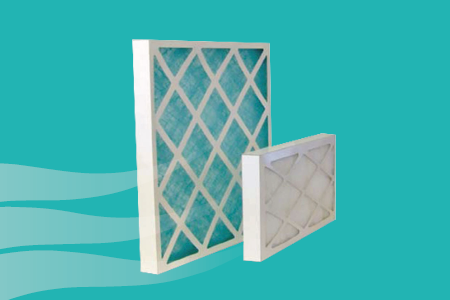HVAC (Heating, Ventilation, and Air Conditioning) filters are crucial components in both residential and commercial systems, designed to improve indoor air quality, protect HVAC equipment, and maintain efficient system performance. Here’s a detailed overview of HVAC filter applications:
1. Functions of HVAC Filters
HVAC filters serve several important functions:
- Air Quality Improvement: Remove dust, pollen, pet dander, and other airborne particles to improve indoor air quality.
- System Protection: Prevent dust and debris from accumulating on system components, such as coils and fans, which can reduce efficiency and lead to maintenance issues.
- Energy Efficiency: By maintaining clean airflow, filters help the HVAC system operate efficiently, reducing energy consumption and costs.
- Odour Control: Some filters can reduce odours by trapping particulates that cause smells.
2. Types of HVAC Filters
Various types of filters are used in HVAC systems, each with different characteristics and applications:
Fibreglass Filters:
- Description: The most basic type, made of spun fibreglass.
- Application: Primarily used to protect HVAC equipment rather than improve air quality. Suitable for systems where air quality is not a primary concern.
Pleated Filters:
- Description: Made from polyester or cotton paper, offering more surface area for filtration.
- Application: Suitable for residential and commercial settings, offering better air quality and system protection than fibreglass filters.
Electrostatic Filters:
- Description: Use self-charging fibres to attract particles.
- Application: Useful in environments where allergen control is a priority, such as homes with pets or occupants with allergies.
HEPA Filters:
- Description: High-Efficiency Particulate Air filters that can capture up to 99.97% of particles as small as 0.3 microns.
- Application: Used in hospitals, clean rooms, and homes where the highest air quality is necessary.
Activated Carbon Filters:
- Description: Use activated charcoal to absorb odours and gases.
- Application: Ideal for environments with strong odours or pollutants, such as kitchens or industrial settings.
Washable Filters:
- Description: Reusable filters that can be washed and reused.
- Application: Cost-effective over time, suitable for residential use but may not filter as effectively as disposable options.
3. Applications of HVAC Filters
Residential:
- Purpose: Improve indoor air quality and protect HVAC systems from dust and debris.
- Common Types: Pleated filters and electrostatic filters are commonly used for better air quality and allergen control.
Commercial:
- Purpose: Maintain a healthy and comfortable indoor environment for employees and customers.
- Common Types: Pleated and HEPA filters are used for enhanced air quality, especially in offices, retail spaces, and restaurants.
Industrial:
- Purpose: Protect equipment from dust and contaminants and ensure a safe working environment.
- Common Types: HEPA and activated carbon filters are used in environments with specific air quality needs, such as manufacturing facilities.
Healthcare:
- Purpose: Provide high levels of air filtration to reduce the risk of airborne infections.
- Common Types: HEPA filters are essential in hospitals, clinics, and laboratories to maintain sterile environments.
4. Selecting the Right Filter
When choosing an HVAC filter, consider the following factors:
MERV Rating: The Minimum Efficiency Reporting Value (MERV) rating indicates a filter’s ability to capture particles. Higher MERV ratings mean better filtration. For residential use, a MERV rating of 8-13 is typically sufficient. Higher ratings are used in commercial and healthcare settings.
System Compatibility: Ensure the filter is compatible with the HVAC system to avoid airflow restrictions that can lead to increased energy consumption or system strain.
Environmental Needs: Consider specific air quality requirements based on the environment, such as the presence of allergens, odours, or pollutants.
5. Maintenance and Replacement
Regular Inspection: Filters should be checked regularly to ensure they are not clogged or damaged.
Replacement Schedule: Depending on the filter type and environmental conditions, filters should typically be replaced every 1 to 3 months. High-efficiency filters may need less frequent replacement.
Cleaning: Washable filters should be cleaned according to the manufacturer’s instructions to maintain effectiveness.
Conclusion
HVAC filters are essential for maintaining air quality, protecting system components, and ensuring efficient operation. Selecting the right filter type and maintaining it properly is crucial for optimising HVAC performance and providing a healthy indoor environment. Understanding the specific needs of the building and its occupants will help determine the best filter choice






